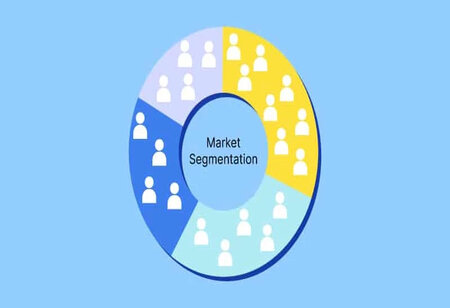How Marketing Segmentation Boosts Customer Engagement and Satisfaction?
By Tanuja NU, Content Writer
 In the current intensely competitive business environment, it is crucial to comprehend and efficiently focus on your customers. Marketing segmentation emerges as one of the most potent resources for marketers. By categorizing your customer base into separate groups according to common traits and preferences, you can customize your marketing strategies to engage and fulfil your customers more profoundly. This article explores into the ways in which marketing segmentation can enhance customer engagement and satisfaction, ultimately resulting in better business results.
In the current intensely competitive business environment, it is crucial to comprehend and efficiently focus on your customers. Marketing segmentation emerges as one of the most potent resources for marketers. By categorizing your customer base into separate groups according to common traits and preferences, you can customize your marketing strategies to engage and fulfil your customers more profoundly. This article explores into the ways in which marketing segmentation can enhance customer engagement and satisfaction, ultimately resulting in better business results.
1. Comprehending Marketing Segmentation:
Marketing segmentation entails the division of a large target market into smaller, more cohesive groups. This procedure considers diverse elements like demographics, psychographics, behaviour, and geographic location. Through the analysis of these factors, marketers acquire valuable insights into the driving forces behind their customers' behaviour, enabling them to develop marketing campaigns that are more specific and meaningful.
2. Personalized Communication:
An important advantage of marketing segmentation is its capacity to provide personalized communication to different customer segments. Rather than using a generic approach, marketers can customize their messages to resonate with specific groups. By directly addressing their needs, desires, and concerns, personalized communication establishes a sense of connection and relevance, ultimately leading to greater engagement and satisfaction.
3. Enhanced Customer Experience:
Segmentation allows businesses to create unique customer experiences based on the preferences and behaviours of various segments. By comprehending the distinct needs and expectations of each group, marketers can optimize their products, services, and interactions accordingly. This results in a more tailored and seamless experience for customers, thereby enhancing satisfaction and strengthening the relationship between customers and the brand.
4. Targeted Marketing Campaigns:
Marketing segmentation enables marketers to develop targeted marketing campaigns that focus on specific customer segments. By identifying the most valuable segments, businesses can allocate their resources more effectively and deliver targeted messages through the most suitable channels. This approach increases the likelihood of capturing the attention of the right customers at the right time, leading to higher levels of engagement and satisfaction.
5. Improved Product Development:
Effective segmentation also provides valuable insights into customer preferences and needs, which can inform strategies for product development. By understanding the unique requirements of different segments, businesses can create products and services that align with those specific demands. This customer-centric approach not only enhances satisfaction but also increases the probability of product success and customer loyalty.
6. Strengthened Customer Relationships:
Marketing segmentation assists businesses in cultivating stronger relationships with their customers. Through the delivery of personalized experiences, targeted marketing campaigns, and tailored products, companies demonstrate that they comprehend and value the distinctive characteristics and preferences of their customers. This level of attentiveness fosters trust, loyalty, and long-term engagement, ultimately resulting in higher levels of customer satisfaction.
7. Measurable Results and ROI:
Marketing segmentation offers businesses the opportunity to measure the impact of their marketing efforts more accurately. By targeting specific segments, marketers can track Key Performance Indicators (KPIs) for each group and evaluate the effectiveness of their campaigns. This data-driven approach facilitates better decision-making and resource allocation, leading to an improved Return on Investment (ROI) and overall business success.
Marketing segmentation is a potent strategy that empowers businesses to gain a better understanding of their customers and engage with them on a deeper level. Through customized communication, optimized experiences, and targeted campaigns, companies can significantly enhance customer engagement and satisfaction. Moreover, segmentation enables businesses to refine their product development strategies and foster stronger customer relationships. By embracing marketing segmentation as a fundamental marketing practice, organizations can achieve measurable results, increased ROI, and a sustainable competitive advantage in today's dynamic marketplace.




